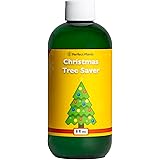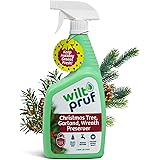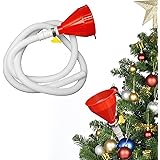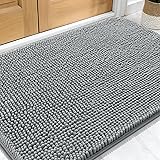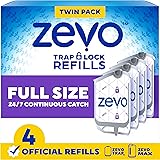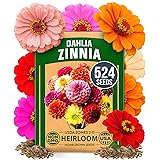If you love the idea of planting bamboo in your garden, you’ll want to read this article before you start digging in your yard! But, can bamboo damage house foundation?
While bamboo may be beautiful and elegant, it can also cause serious damage to the house foundation if planted too close to the building. Read on to learn more about what kind of damage bamboo can cause and why you should keep your garden and house foundations separate.
What Is Bamboo? Is It Damaging To The Property?
Bamboo is a fast-growing grass that can reach heights of over 100 feet. It is often used as a landscaping plant because of its ability to grow quickly and provide privacy.
However, bamboo can also be damaging to property. The roots of bamboo plants can grow up to 10 feet long and travel underground for miles, making them difficult to control.
Additionally, bamboo roots can grow through concrete and damage foundations. If you are considering planting bamboo on your property, it is important to learn about the risks first.
One way to stop bamboo from spreading is by using root barriers around the perimeter of the property. Root barriers contain bamboo’s growing roots in one area, so they don’t spread outwards and disrupt other areas of your yard or home’s foundation.
To avoid any issues with bamboo on your property, consult an expert before planting anything near the house foundation or other structures such as sidewalks or patios. Bamboo roots can grow through concrete and cause major damage to houses.
How Does It Grow?
Bamboo is a fast-growing grass that can spread quickly and send out roots far from the plant. If you’re not careful, bamboo can damage your house foundation or invade your neighbor’s property.
Here’s what you need to know about how to stop bamboo spreading.
Once bamboo has established itself, it will continue to grow as long as there is sun, water and fertile soil. It does best in moist climates with plenty of rain and full sun exposure.
There are a few things you can do to help slow down its growth and keep bamboo from damaging your home:
1) Install a sturdy fence around the area where bamboo is growing.
2) Remove any bamboo shoots that may have grown over the fence, so they don’t try to grow through it again.
3) Dig up any bamboo plants within three feet of the house foundation before they get too big.
4) You should also make sure bamboo is planted at least 100 feet away from the nearest structure.
5) Remember to clean up leaves on bamboo once fall comes because when bamboo leaves decompose, they produce methane gas which can potentially lead to an explosion if it accumulates near a building.
6) If bamboo still continues to bother you, consider trimming it back in early spring before it flowers or sending seeds flying all over your yard.
7) Finally, check for bamboo periodically by pulling back layers of leaf litter sometimes.
If bamboo still continues to bother you, consider trimming it back in early spring before it flowers or sending seeds flying all over your yard. Make sure bamboo is planted at least 100 feet away from the nearest structure, and use a sturdy fence to protect your property.
Keep bamboo from getting too close to your house foundation by removing bamboo shoots, digging up bamboo plants, cleaning up leaves after fall comes, and checking for bamboo periodically, possibly every year.
Where Does It Grow Best?
In its native Asia, bamboo grows in a wide range of climates, from tropical to temperate.
But it’s become an invasive species in many places around the world, including the southeastern United States. Bamboo can damage house foundations by growing too close.
The roots can travel far and wide, causing cracks and other problems. If you’re thinking about planting bamboo near your house foundation, make sure you know the risks first! The roots can grow surprisingly far, and bamboo can easily be planted too close for comfort.
And that’s not all, bamboo plants are typically very thirsty, so they will require extra water from nearby sources, in dry regions this is especially worrisome.
Bamboo is tough to get rid of once established, so if you don’t want any of these issues, then keep them away from your house foundation!
There are lots of natural methods you can use to prevent the bamboo from taking over areas like your garden or home. You might think you’ve successfully removed bamboo because there’s no new growth, but their rhizomes may still be there.
They might return when it rains again or when more people plant them nearby! It is possible to get rid of bamboo, but consult with professionals who have experience removing bamboo since there are different methods depending on where the plants grow and how big they are.
Types of Bamboo
There are many types of bamboo, but not all of them are known for their invasive roots.
Some varieties, like Phyllostachys aurea, can spread quickly and send out roots that travel far from the main plant. If you’re considering planting bamboo near your house foundation, it’s important to research the risks first.
Contact an arborist if you have any questions about how to stop bamboo spreading, or whether bamboo damage to property is something you should be concerned about. They’ll be able to recommend the best type of bamboo for your needs, as well as offer advice on how to keep bamboo in check.
It might seem strange to think of bamboo as damaging to property at first glance, but it’s definitely possible. Be sure to get professional help before planting anything too close to your home.
The more you know about this green, grassy stuff, the better off you’ll be!
One wrong move could cost you thousands of dollars. For example, if you were thinking of buying bamboo to install in your backyard, but it turns out that one variety has a reputation for being invasive, then planting it will lead to costly damage.
Luckily, there are lots of other types of bamboo with less risk attached, so do some research and find one that suits your needs before taking action. Remember, prevention is key!
When Should You Avoid Planting Bamboo Altogether?
If you’re concerned about bamboo damaging your foundation, the best thing to do is avoid planting it altogether.
However, if you have your heart set on bamboo, there are a few things you can do to minimize the risk.
First, choose a species of bamboo that is known to have shallow roots.
Second, plant your bamboo at least 10 feet away from your foundation.
Third, water sparingly and only when necessary.
Fourth, maintain healthy soil by fertilizing with nitrogen-rich fertilizer like cottonseed meal or blood meal.
Fifth, keep your lawn mowed short so weeds don’t grow as they will compete for moisture and nutrients.
Sixth, use landscaping fabric around the perimeter of your house to prevent rooting through cracks in foundations. Seventh, trim leaves and shoots regularly.
Eighth, remove old culms every 3-5 years to encourage new growth.
Ninth, install a drainage tile under the root zone of your bamboo to help manage excessive watering.
Finally, mulch around the base of your plants to reduce weed pressure and promote healthier soils.
The answer to this question may vary depending on where you live, but be mindful of your local environmental conditions before deciding Whether you should plant bamboo near your home.
In some cases, over-watering could also be contributing to foundation damage caused by invading roots rather than an inherent property of the plants themselves.
To combat this problem, invest in some quality irrigation products designed specifically for hydroponic horticulture.
Risk Factors
Not all bamboo poses the same threat level to foundations. A few factors determine the potential damage:
- Bamboo species
Runner bamboos with long rhizomes spread farther and wider. Dense clump-forming bamboos tend to stay more contained.
- Distance from foundation
The closer bamboo is planted to a house, the higher risk it can penetrate and shift the ground under footings. Planted too close, it may cause cracking and subsidence.
- Soil type
Bamboo spreads fastest in loose, sandy, or wet soils that are easier for rhizomes to traverse. Well-drained but firm soil helps restrict spread.
- Barrier depth
Installing a properly deep rhizome barrier around foundations blocks incursions. Experts advise 30-36 inches depth.
What Can You Do If You Want To Plant Some Anyway?
If you’re determined to plant bamboo near your house, there are a few things you can do to minimize the risk of damage.
First, choose a species of bamboo that is not known to be aggressive.
Second, make sure you plant it at least 10 feet away from your foundation.
Third, install a root barrier made of heavy-duty plastic or concrete at least 3 feet deep and extend it outwards for at least 10 feet.
Fourth, if possible (and this may require building permits), create drainage swales on either side of the bamboo so that water flows away from your home.
Finally, be aware that some types of bamboo have roots as long as 100 feet; any construction activity in the area will likely disturb these roots.
And even though the risk of bamboo damaging your house foundation seems small, I don’t want anyone to regret planting one too close. So I recommend staying away from them altogether.
Whether planting bamboo around your home is a smart idea.
There are a few things to consider before planting bamboo near your home. One is how far can bamboo roots travel.
Bamboo roots can travel up to 20 feet from the plant, so if you have a foundation that is close to where you want to plant, there is a chance the roots could reach it and cause damage.
Additionally, bamboo can grow up to 60 feet tall, so if you have power lines near your home, they could become entangled with the bamboo and cause problems.
The other risk when planting bamboo near your home is how much water does bamboo need. The plants require at least an inch of water every day. If you don’t water them enough, they will die and start rotting away which will attract bugs around your house like flies and mosquitoes, which can be harmful to people with allergies or who are prone to mosquito bites.
It’s also important to know how deep do bamboo roots go. In some areas, this has been found to be as deep as 25 feet underground. The average depth is about 5-10 feet deep.
Bamboo root systems (or rhizomes) may extend out laterally in all directions forming colonies many meters wide.
However, not all varieties spread as aggressively in cultivation as others.
This makes it easier to predict how far bamboo roots will spread underground, but it still depends on the variety being planted and how well established the plant already is.
Frequently Asked Questions (FAQs)
One of the most common concerns about planting bamboo near your home is that it might damage foundations. So, yes the bamboo roots can break through the concrete.
In general, as long as there is an adequate water supply, bamboo’s root system will grow 10-12 feet from its base. Root growth will be inhibited if you place a physical barrier between the plant and the barrier, such as a foundation or wall.
Generally, a bamboo plant’s root system will go down anywhere from 18 inches to 2 feet. This depends on soil conditions and whether it is a clumping or running variety of bamboo.
It is extremely difficult to eradicate bamboo. Even after chopping down a plant and removing its root system, new shoots will continue to grow from nodes along its rhizomes, or underground roots. In addition, because bamboo has so many different varieties and habits (clumping vs. running), it is best to consult an expert before planting it near your home or business. Only then can you determine whether it would be appropriate for your location.
The disadvantages of bamboo include its difficulty to eradicate, its tendency to attract termites, and its long tap root which can crack foundations. In addition, if you are not a trained horticulturist or contractor who understands how to plant bamboo properly, bamboo may not be suitable for your home or business. Consult an expert before planting it near any structure that you do not want to be damaged by incoming roots.
Read More: About How to Get Big Pothos Leaves
Wrapping Things Up
Can bamboo damage house foundations? It’s possible, but it’s not as likely as you might think. The biggest risk is if the bamboo is allowed to grow unchecked and becomes too large. If you’re concerned about bamboo damaging your foundation, consider hiring a professional to remove it.
You can also contact your local city office or building inspector for more information on keeping your home safe from this invasive plant.
Happy gardening!
Auto Amazon Links: No products found.
VEVOR Tree Watering Bags Slow Release, 4 Pack 16 Gallons Tree Watering Ring, Reusable Refillable Tree Irrigation Ring Water Bags, Heavy Duty Watering System for Shrub Tree Root Drip Irrigation
$29.99 (as of February 19, 2026 04:52 GMT +00:00 - More info- Product prices and availability are accurate as of the date/time indicated and are subject to change. Any price and availability information displayed on [relevant Amazon Site(s), as applicable] at the time of purchase will apply to the purchase of this product.
Perfect Plants Christmas Tree Saver 8oz. | Easy Use Xmas Tree Preserver Food | Have Healthy Green Christmas Trees All Holiday Season
$16.99 (as of February 19, 2026 04:52 GMT +00:00 - More info- Product prices and availability are accurate as of the date/time indicated and are subject to change. Any price and availability information displayed on [relevant Amazon Site(s), as applicable] at the time of purchase will apply to the purchase of this product.
Mini Decorative Watering Can, Set of 6, Height 1.97 inch, Cute Metal Jug for Hand Crafts,Garden Theme Parties and Home Decor
$8.99 (as of February 19, 2026 04:52 GMT +00:00 - More info- Product prices and availability are accurate as of the date/time indicated and are subject to change. Any price and availability information displayed on [relevant Amazon Site(s), as applicable] at the time of purchase will apply to the purchase of this product.
Wilt-Pruf® Christmas Tree/Cutting Preserver Spray |Preserves Christmas Trees, Wreaths, Garlands, Cuttings and Carved Pumpkins | Reduces Needle Drop | Keeps Cut Trees Fresh Longer | Natural (32 oz)
$21.99 (as of February 19, 2026 04:52 GMT +00:00 - More info- Product prices and availability are accurate as of the date/time indicated and are subject to change. Any price and availability information displayed on [relevant Amazon Site(s), as applicable] at the time of purchase will apply to the purchase of this product.
Joewuzun 1.5m Christmas Tree Watering Funnel Longer Tree Funnel Watering Spout Tree Watering Device Christmas Tree Long Funnel Watering System Xmas Plant Watering Tool for Large Indoor Outdoor Plants
$9.99 (as of February 19, 2026 04:52 GMT +00:00 - More info- Product prices and availability are accurate as of the date/time indicated and are subject to change. Any price and availability information displayed on [relevant Amazon Site(s), as applicable] at the time of purchase will apply to the purchase of this product.
TERRO Ant Killer Bait Stations T300B - Liquid Bait to Eliminate Ants - Bait System - 12 Count Stations for Effective Indoor Ant Control
$11.97 (as of February 19, 2026 04:52 GMT +00:00 - More info- Product prices and availability are accurate as of the date/time indicated and are subject to change. Any price and availability information displayed on [relevant Amazon Site(s), as applicable] at the time of purchase will apply to the purchase of this product.
OLANLY Dog Door Mat for Muddy Paws 30x20, Absorbs Moisture and Dirt, Absorbent Non-Slip Washable Doormat, Quick Dry Chenille Mud Mat for Dogs, Entry Indoor Entryway Carpet for Inside Floor, Grey
$9.48 (as of February 19, 2026 04:52 GMT +00:00 - More info- Product prices and availability are accurate as of the date/time indicated and are subject to change. Any price and availability information displayed on [relevant Amazon Site(s), as applicable] at the time of purchase will apply to the purchase of this product.
Zevo Flying Insect Trap Official Refill Cartridges - Fits Both Zevo Trap & MAX Indoor Fly Trap - Authentic Trap+Lock Technology to Catch Gnats, House & Fruit Flies (4 Official Refill Cartridges)
$14.97 (as of February 19, 2026 04:52 GMT +00:00 - More info- Product prices and availability are accurate as of the date/time indicated and are subject to change. Any price and availability information displayed on [relevant Amazon Site(s), as applicable] at the time of purchase will apply to the purchase of this product.
Wagner's 53002 Farmer's Delight Wild Bird Food with Cherry Flavor, 10-Pound Bag
$12.48 (as of February 19, 2026 04:52 GMT +00:00 - More info- Product prices and availability are accurate as of the date/time indicated and are subject to change. Any price and availability information displayed on [relevant Amazon Site(s), as applicable] at the time of purchase will apply to the purchase of this product.
HOME GROWN Zinnia Dahlia Seeds Pack for 2026 Non GMO 524 Flower Seeds | Vibrant Zinnia Elegans for Pollinator Gardens, Borders & Containers | Easy-to-Grow Outdoor Blooms
$6.99 (as of February 19, 2026 04:52 GMT +00:00 - More info- Product prices and availability are accurate as of the date/time indicated and are subject to change. Any price and availability information displayed on [relevant Amazon Site(s), as applicable] at the time of purchase will apply to the purchase of this product.



